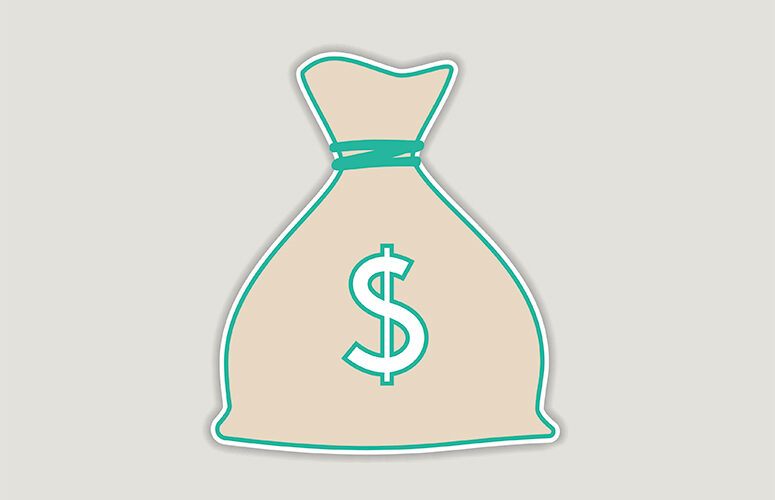
5 Financial Strategies in Uncertain Times
Accountants and other experts showcase financial strategies for confronting inflation, a volatile stock market, and other economic concerns.
By George N. Saliba, Contributing Writer On Aug 9, 2022With the consumer price index rising 9.1% year-over-year in June, and the stock market’s S&P 500 index declining 22% in 2022 (at press-time), some consumers are re-evaluating their savings, budgeting and retirement strategies. And as broader questions about the US economy’s outlook are now being fueled in part by the Federal Reserve’s June 0.75% interest rate hike, financial preparedness may be especially important in this unpredictable climate, which also includes geopolitical concerns.
Although the financial advice world is filled with various investment options and strategies, core financial approaches, such as the following strategies, can help pave the wave for financial stability in uncertain times.
It is important to stress that seeking expert help is also advised during these times. According to Neal H. Rotenberg, office managing partner at the accounting firm Marcum LLP in Saddle Brook, “Life is unpredictable, the economy is cyclical, and events around the world can impact the way we live, work and save. That is why it is so important to work with an experienced, credible advisor to plan your individual and business financial future.”
Emergency Savings Funds
According to accountants and other experts, creating emergency savings funds is one way that individuals and families can plan to have enough money to cover between three to six months of living expenses, should the need arise. Such emergency funds can be used for everything ranging from surviving job layoffs and making crucial home repairs, to paying for vehicle maintenance and/or medical expenses, the latter for which maximum family out-of-pocket costs (for a 2022 marketplace plan) can be as high as $17,400.
“Cash is not always king, but when you need it, it is,” explains David Boak, CFP®, financial advisor at Wiss Private Client Advisors, LLC in Florham Park. “That’s important. Having that [emergency fund] liquidity in a tough time is going to feel a lot better than having to scramble and look at other accounts to try [to] draw up money.”
Meanwhile, Marcum’s Rotenberg notes that most homeowners have home equity they can borrow against in emergency situations and, separately, that most 401(k) plans also have borrowing options.
He also cites a “silver lining” with inflation and the rise of interest rates: Individuals are finally realizing earnings via their bank savings accounts.
“In the past few years, it was difficult to place money in a bank when [clients] were receiving less than a 1% interest rate while the stock market was generating large rates of returns,” Rotenberg explains. “Now, individuals are looking at money market accounts and CDs as an investing option.”
Broader Strategies
Overall, Rotenberg says his firm’s clients “seemed to have learned” from the last few economic downturns, that most have saved and invested well during the last few years of strong economic growth and that they have personal debt at “very low levels.”
He adds, “Individuals are much more cautious than we have seen in the past. In general, they have not over-extended their finances. The biggest issue has been the cost of housing.”
But the going may nonetheless be challenging. Rotenberg says, “The conflicts around the world are causing changes that are so rapid that our clients are having trouble keeping up. World events are causing the markets to drop so rapidly that most of our clients cannot change their investment strategies fast enough.
“With [the] current situations in the world, most of our individual clients are reducing their debt and continuing their investment in the stock markets.”
Reducing Debt
In the realm of reducing debt, the tried-and-true strategies of eliminating credit card and other so-called “bad” debt remain, ranging from attacking the lowest-balance credit cards first, or, alternatively, by first paying down the largest-debt, highest-interest credit cards.
Experts such as Kelly Raso, CPA, associate partner at the accounting firm Alloy Silverstein, with offices in Cherry Hill and Hammonton, stress overall: “You don’t want to have a lot of credit card debt. Their interest rates have always been high anyway, but if they go up even more … it’s really kind of like a last resort for any kind of funding – or emergency savings – at an individual level.”
There are other debt considerations: Marcum LLP’s Rotenberg says, for example, that given rising interest rates, his firm suggests that clients consider reducing variable interest rate debt. He explains, “The higher monthly interest payments of our clients, especially those clients that have large variable rate home equity loans, or our business clients with variable or high-rate unsecured debt, could eventually make a significant dent in their disposable income.”
Budgeting
Obtaining the most disposable income is of course also inextricably linked to budgeting, and various online tools can help reduce the tedium historically associated with it.
Wiss Private Client Advisors’ Boak says, “The first part [of budgeting] is certainly having a grasp what’s going in (income) and what’s going out (spending).” Boak also says that it’s helpful to know what one is budgeting for – whether it’s retirement or to boost emergency savings, for example. He additionally advises funding 401(k)s as much as possible and availing oneself of an employer’s matching 401(k) funds.
He says overall, “If someone hasn’t done [budgeting] in a while, these are usually good times (increasing inflation) to do it. We’re noticing that credit card bills and everything else are a little bit higher than they used to be due to increased costs from food to gas, to pretty much everything else we’re buying at this point.
“I don’t know what is cheaper now than it was a year ago, except maybe stocks.”
Investing in the Stock Market
In the stock market sphere, while the S&P 500 index gained an average of 24% between 2019 and 2021, this past performance obviously does not guarantee future success. Experts nonetheless say the S&P 500, other indices and/or individual stocks do present investment opportunities for individuals investing with long-term goals.
But Alloy Silverstein’s Raso also points out: ‘It’s not a great [situation] for the people who are approaching retirement age – it’s very scary for them – because they probably have seen their retirement funds diminish significantly in the last few months.”
To access more business news, visit NJB News Now.
Related Articles:





